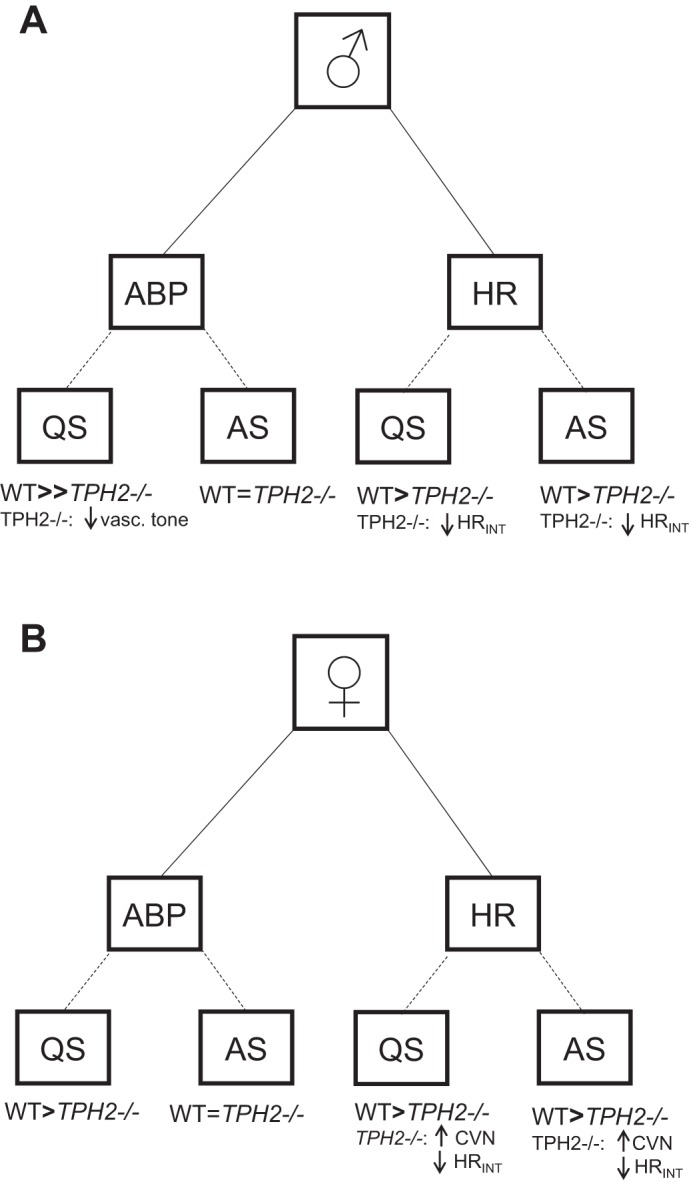Fig. 5.

Summary of main findings. In both sexes, TPH2−/− pups have reduced arterial blood pressure (ABP) in quiet sleep (QS) but not in active sleep (AS). In males, but not females, central 5-hydroxytryptamine (5-HT) helps maintain ABP by increasing sympathetic vascular tone. Both male and female TPH2−/− pups have reduced heart rate (HR) compared with wild-type (WT) littermates, in part because of reduced intrinsic HR (HRINT). In both QS and AS, increased cardiac vagal nerve activity (CVN) contributes to the reduced HR of TPH2−/− females.
